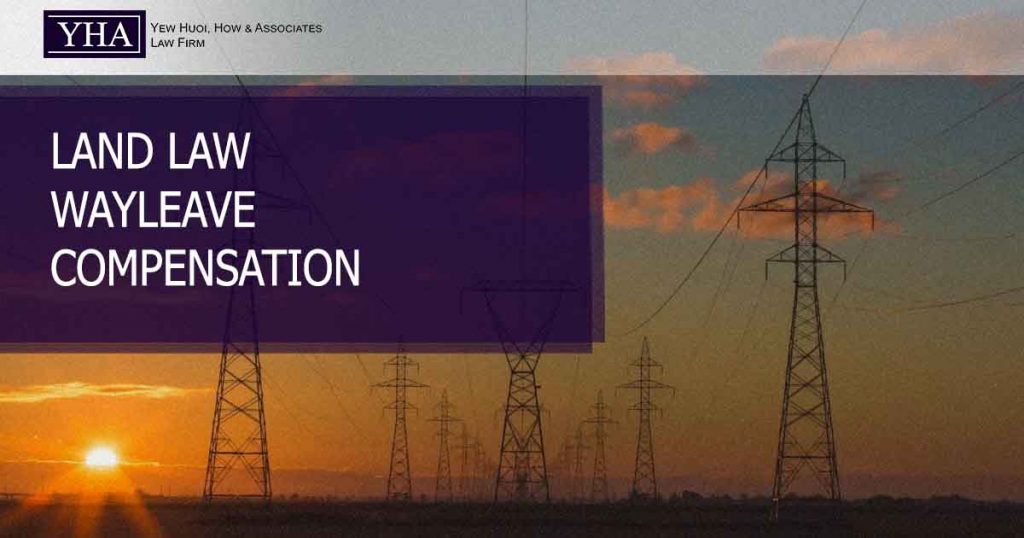In brief
- Under Malaysian law, way leave is a procedure for obtaining easement rights over property for the purpose of installing any electrical system. Because the term “wayleave” is not defined in the ESA, a reference has been made to the situation in the United Kingdom, where a wayleave is a method of granting a corporation the right to construct and maintain cabling or pipes across private land in exchange for an annual payment to the landowner. A wayleave is often a temporary agreement that does not transfer to a new owner or occupant automatically. It’s a type of licence that’s personal to the parties, can be terminated after a set amount of time, and won’t bind the successors in title, as stated in the wayleave agreement.
Q. Is it permissible for TNB technicians to enter your land with a wayleave that they have obtained?
A. Yes, a wayleave gives them access to the property so they may build and maintain cabling to minimise frequent tripping and to offer an adequate, high-quality, and dependable system.*
Rights of wayleave under the Electricity Supply Act 1990 (ESA)
- Sections 11 and 13 of the ESA are two significant clauses that pertain to the right to wayleave. For the right to use the wayleave, the licensee must pay compensation to the landowner or anyone with an interest in the land. The method for obtaining the right to wayleave is outlined in Section 11 of the ESA. To begin, the landowner must be served with a Notice of the First Schedule under section 11(2) of the ESA, informing them of TNB’s intentions to access their property. Landowners have two weeks to file an objection, as required by section 11(4) of the ESA. TNB may enter the land to carry out the necessary work if no objections are filed. If a landowner files an objection, the District Land Administrator will hear their arguments or concerns.
- If a landowner files an objection, the District Land Administrator will hear their arguments or concerns. Upon completion of the investigation, the administrator may make an order under section 11(7) of the ESA authorising or banning any of the conduct described in the notification, either unconditionally or subject to such terms. The order must be in the form set forth in the Second Schedule, and the State Authority has the authority to order the purchase of any land or portion of any land included in the notice.
- TNB can also enter other people’s land under section 13 of the ESA, which states that “whenever it is necessary so to do for the purpose of maintaining, repairing, or upgrading any licenced installation of any part thereof, the licensee, or any person authorised by him in that behalf, may at all reasonable times enter upon any land on, under, or over which supply lines have been laid, placed, or carried, or upon which posts or other equipment have been placed or carried, the licensee, or any person authorised by him. TNB will, as a result, ensure that as little harm as possible is caused, and will provide full compensation in line with section 16 of the ESA, as such damages have not been evaluated under section 11 of the ESA.
Examples: In the case of Dusunku Sdn Bhd v Tenaga Nasional Bhd [2022] the plaintiff protested to the proceedings, and as a result of the objection, the Pendang District Land Administrator (‘the land administrator’) undertook an investigation under section 11(6) of the ESA 1990. Following the completion of the investigation, the land administrator granted wayleave to the defendant under section 11(7) of the ESA 1990, followed by compensation to the plaintiff in the amount of RM188,672.40. The complainant filed an appeal to the MMK under section 16(2) of the ESA 1990 because he was unsatisfied with the compensation amount. The plaintiff then claimed that the defendant had failed to comply with the MMK’s ruling by agreeing to pay the plaintiff RM399,312.
How does the compensation value be evaluated?
- The District Land Administrator or TNB will send the case to the Valuation and Property Services Department and the Ministry of Finance for the creation of valuation reports for compensation purposes. The valuation will be based on the market value of the impacted land as well as the market value of the trees that already exist on the property. Hearings or investigations shall be conducted by the District Land Administrator for compensation under section 16 ESA for any disruption, damage, or impairment that occurs as a consequence.
- Compensation for disturbance refers to the payment for the removal of houses, buildings, and other permanent structures; compensation for damage refers to the payment for the removal of trees and plants with economic value; and compensation for disability refers to the payment for land areas affected by the ren-tice. To avoid future disputes, both the utility and the owner or occupier of the land must agree on the rate of compensation given under the wayleave agreement.

